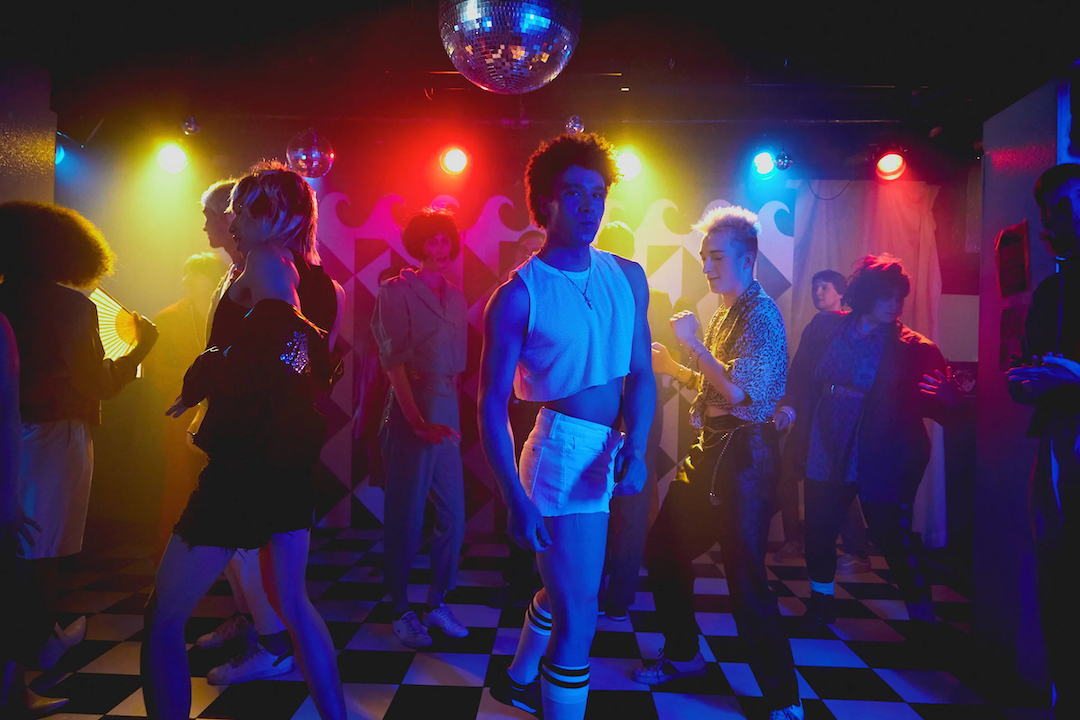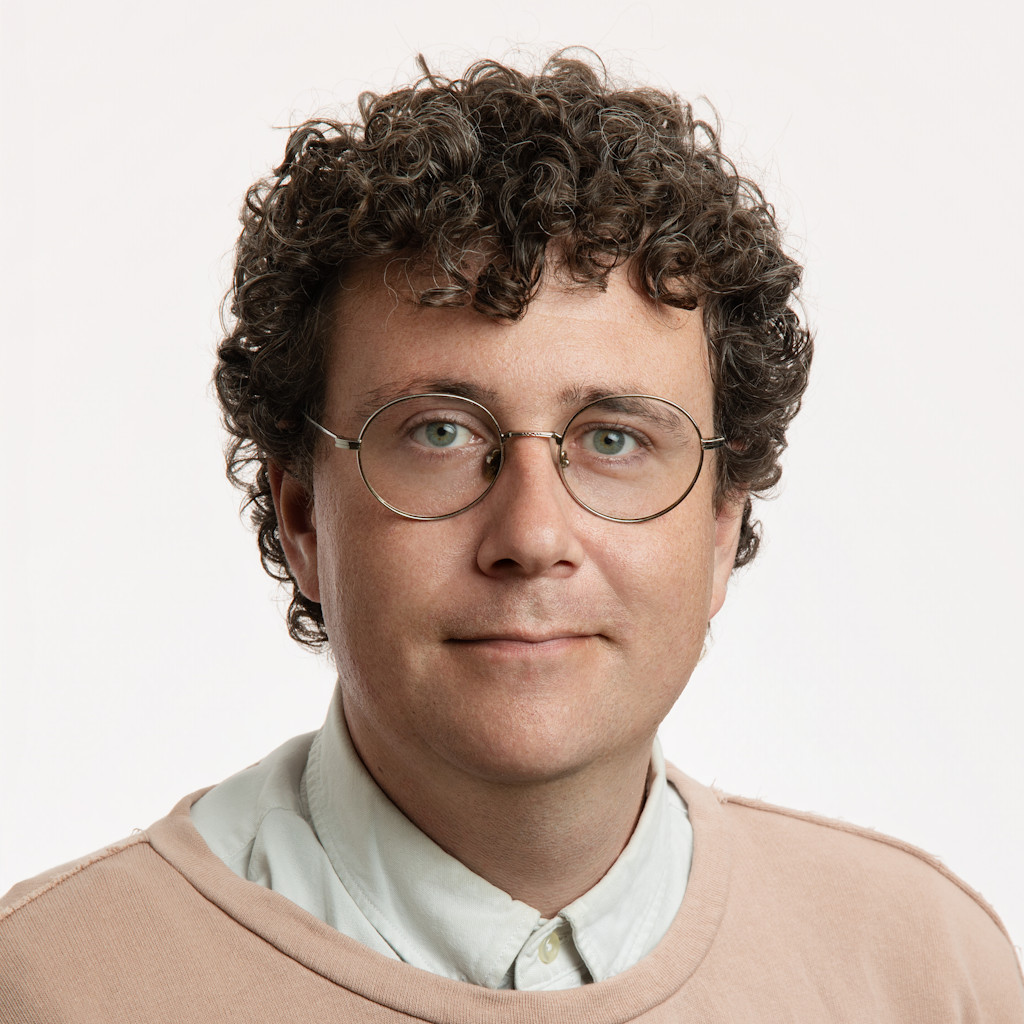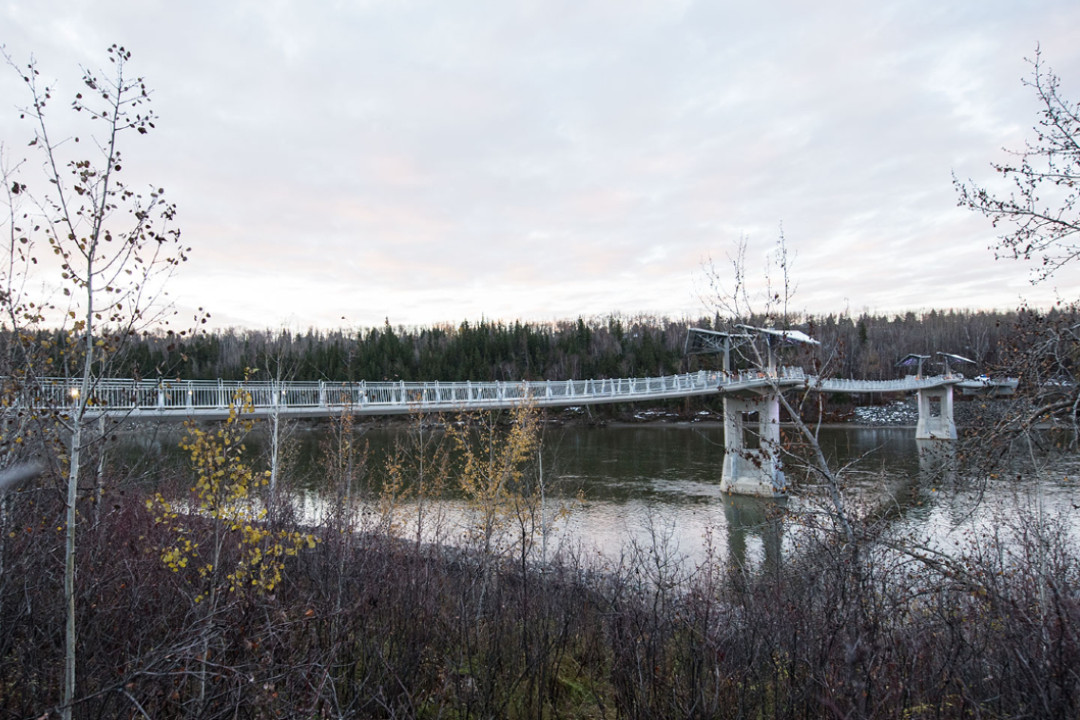
New doc recreates Edmonton's norm-busting Flashback nightclub
A new documentary about Flashback, the long-closed Edmonton queer nightclub that's often referred to as the "Studio 54 of the Prairies," uses novel techniques to keep the story and club alive.
"I like to say 'I'm still in Grade 2,'" Peter Hays, Flashback director and the owner of Tangerine Productions Ltd., told Taproot. "Show and tell is what I do."
He and his brother, Matthew Hays, led the creative team for the film. The duo knew they didn't want to make a standard documentary with archival footage, still photographs, and talking-head interviews. Plus, when they successfully pitched the doc to TELUS they had yet to even secure archival footage from inside the club, which closed in 1991.
Eventually, the brothers did land archival footage (from consulting producer Patrick Monaghan, playwright Darrin Hagen, and Flashback creator John Reid), but their creative juices were already flowing. To show Flashback rather than tell, the filmmakers commissioned 3D graphics based on blueprints of the club. They also worked with Rob Browatzke, owner of Evolution Wounderlounge, to redecorate his club's interior into a Flashback facsimile for three days to allow for reenactments with 50 club-goers.
"We did auditions, and our people who judged the kids, the leads of our hair, makeup, and wardrobe departments, went to Flashback when they were young," Hays said. "They knew what they were looking for, and they knew how to create that place."
Hays added the doc is "about an energy and a time" rather than telling people about it. "Having a bunch of old guys like me talk about it for 90 minutes, that's not gonna work. The central piece of energy that we needed was to see club kids in the club."
But what's a dance sequence without music? After all, Flashback — which was located at 104 Street and 103 Avenue downtown — earned the "Studio 54 of the Prairies" nickname because of the music, too. The brothers, both from Edmonton but now living in Calgary (Peter) and Montreal (Matthew), again bridged the past and present by recording two disco tracks at Studio Bell (home of the National Music Centre) in Calgary with singer D'orjay. One is a cover of "So Many Men/So Little Time" by Miquel Brown; the second is an original called "Don't Stop Dancing," by Peter Hays, Ian Dillon, and Carson Dillon.
Music and nightlife might seem trivial to some. But Peter Hays said, especially for Flashback's run from 1974 to 1991, these components were critical.
"Gay culture went mainstream with the advent of disco music," he said. "That changed nightclub life; it changed queer culture. But at the same time, if you were gay, you couldn't show that anywhere in Edmonton without fear of reprisal, except for the occasional location like Flashback."







